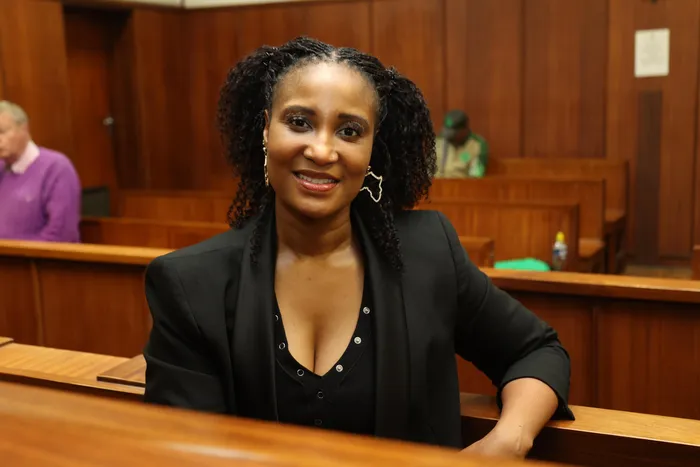Digital law expert disputes key witness' evidence in Zuma-Sambudla trial

Duduzile Zuma-Sambudla is on trial in the Durban High Court for her alleged instigation of the deadly 2021 unrest.
Image: Tumi Pakkies / Indepedent Media
Duduzile Zuma-Sambudla's attorney, Dali Mpofu, has used University of Cape Town-based digital law expert Pitso Tsibolane's report to challenge the State in proving that the messages that were sent during the July 2021 unrest were authored by Zuma-Sambudla.
During the cross-examination of the State witness, Emma Sadleir, who is a social media law expert, Mpofu presented Tsibolane's report, which was admitted into the court record.
In the report, Tsibolane, who is a senior lecturer in the varsity’s Department of Information Systems, argued that the State has not established that Zuma-Sambudla authored the messages.
“There is a difference between the authorship and the ownership of a message, and in this matter, the State has not established who the author was,” argued Tsibolane.
In response, Sadleir argued that if the author is not disclosed, it is the sender of the message that must ultimately take full responsibility for the impact created by the message.
“My Lord, here we are dealing with an influential person in the family, in politics, with huge followers on social media. What she posts is more than the front page of a newspaper. She, as the sender of the messages, must accept the consequences of the messages she sent,” argued Sadleir
Mpofu also argued that one of the criticisms levelled against her report by Tsibulane is her lack of knowledge of the cultural context of the accused tweets.
He said some of the messages had cultural and political contexts, such as 'Amandla' (power) and 'We see you', which cannot be defined literally.
However, Sadleir argued that although she can concede her weakness to the political and cultural context, that will not mean that she cannot assess that content.
“My Lord, we are dealing with social media culture and many cultures, not only Zulu culture,” replied Sadleir.
Tsibolane further argued the issue of citizen journalism and commentary, where any citizen can report about any event, not only journalists.
The defence argued that the accused was just reporting what was happening; therefore, she couldn't be accused of incitement.
However, Sadleir dismissed that, saying the accused did not report but celebrated, encouraged, appreciated, and shouted amandla, which was not citizen journalism.
The matter was postponed to April next year.
Sadleir, who has been in the witness box since Tuesday, will return to the witness stand again to face cross-examination when the trial resumes.
She is a key State witness who, because of her specialisation in social media law, was approached by the Directorate of Priority Crimes Investigation (DPCI) to assess whether Zuma-Sambudla’s action violated social media laws.
She concluded that there was a violation and Zuma-Sambudla had a case to answer.
She recommended four charges, which were incitement to terrorism, incitement to public violence, sedition, and Cybercrimes Act violation.
However, the State proceeded with only two of these recommendations: incitement to terrorism and incitement to public violence. Sadleir, an admitted attorney specialising in social media law, described herself as the go-to expert for issues on social media law.
The uMkhonto weSizwe Party MP and former president Jacob Zuma's daughter is on trial in the Durban High Court for allegedly instigating the 2021 civil unrest, which resulted in over 350 fatalities and inflicted significant damage on the KwaZulu-Natal economy.
willem.phungula@inl.co.za